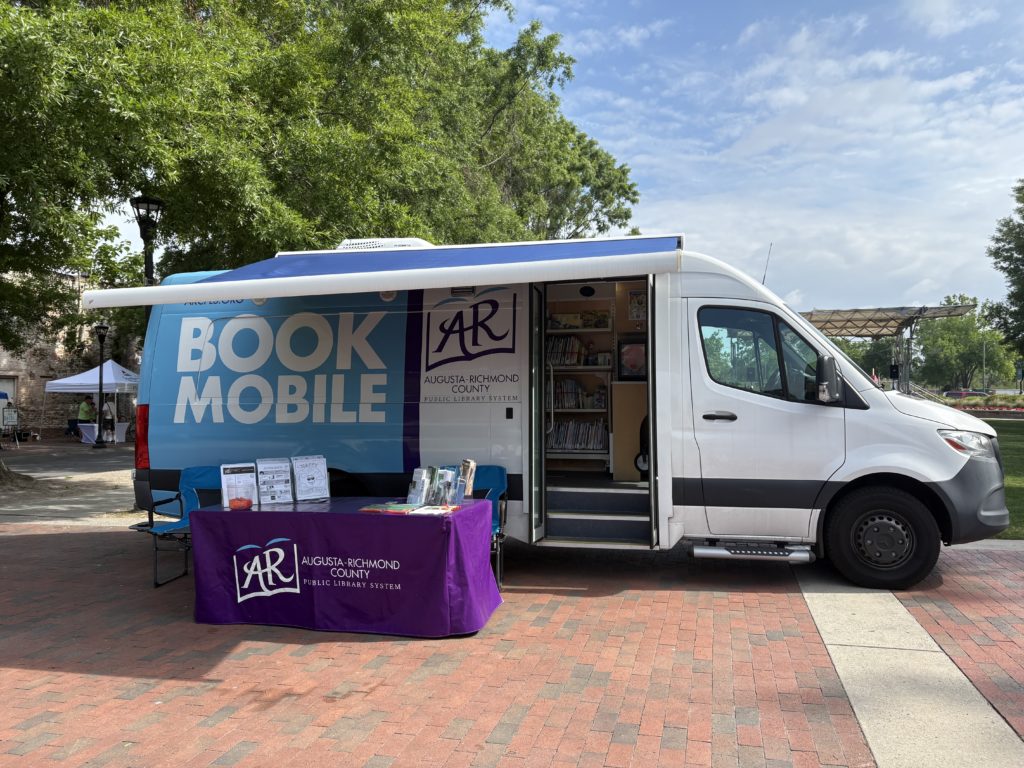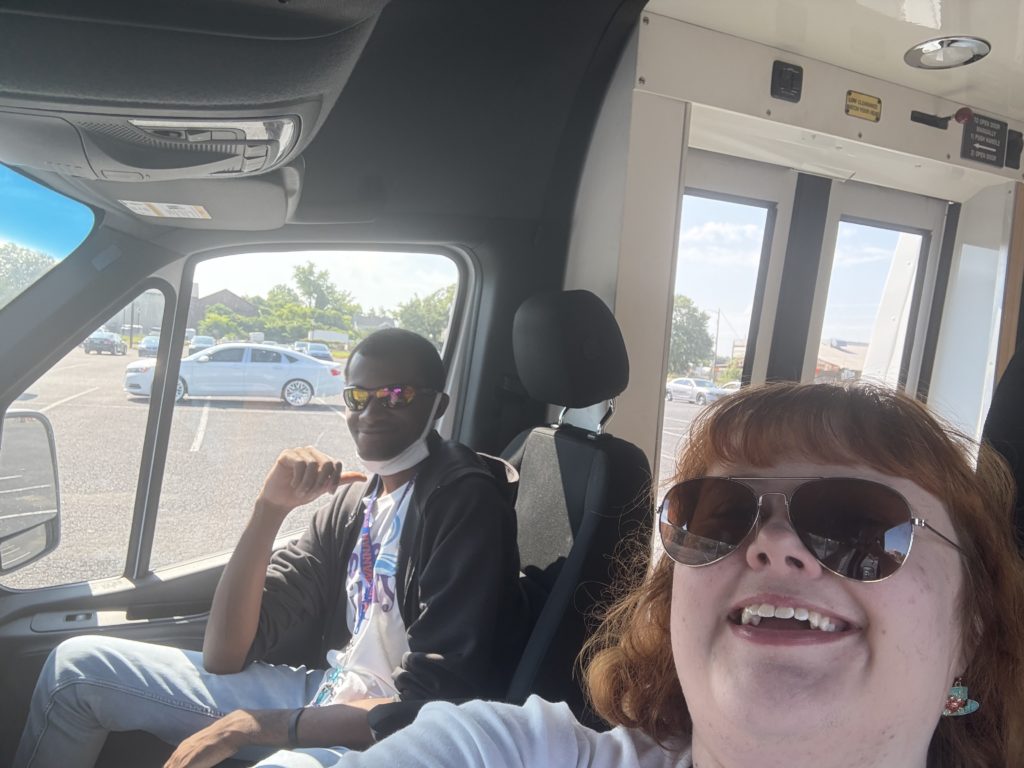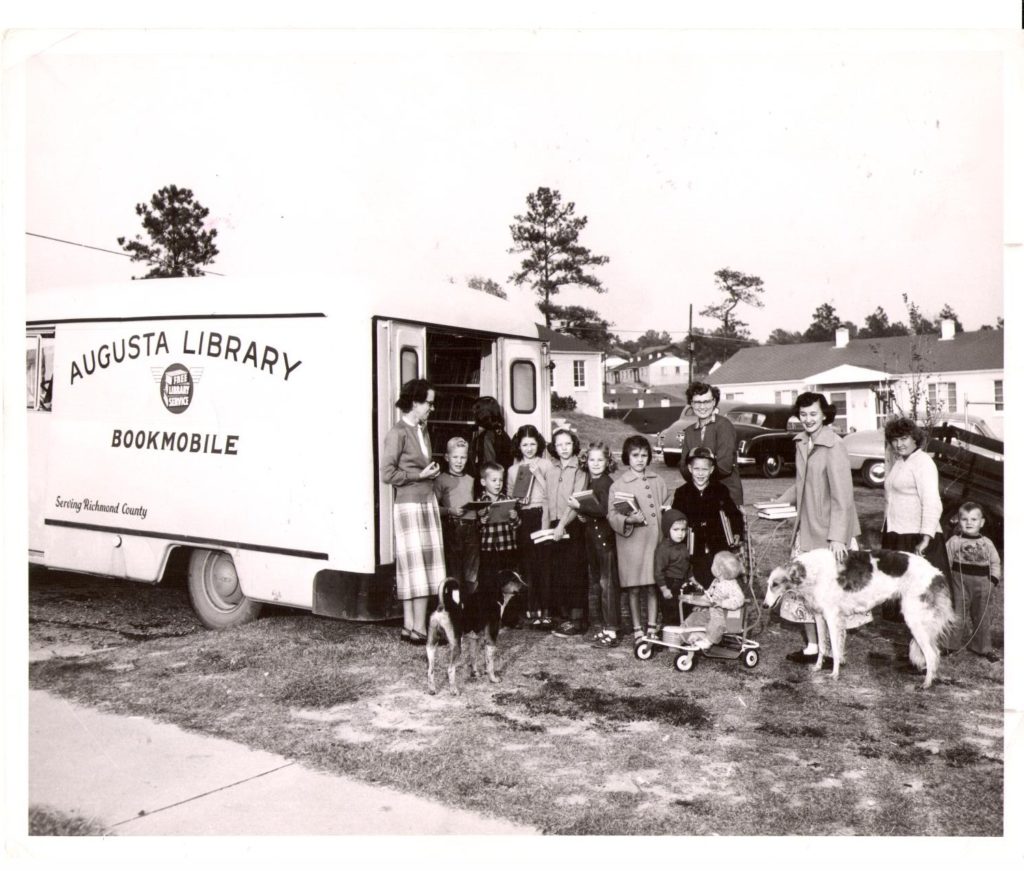
“Growing up out in Hephzibah, well past Hwy 88, living on dirt roads, our one link to the rest of the world was the dependable arrival of the Bookmobile. I dragged my little red wagon down each time, chock full of the books I’d checked out, eager to trade them in for new ones, or trusted favorites. I would easily check out 30 books each visit, and read them over and over again. The librarians always brought books that they knew I would like. From age 5 to 10 the Bookmobile brought me joy and fed my insatiable hunger for books. I believed it was magic.” –Lorin Crawford, native Augustan
Where would libraries and their communities be without the beloved library bookmobile? From the 1960s until the 1990s, a time considered the bookmobile heyday, online images abound of smiling kids and their parents, arms overloaded with so many books, gathered around that iconic library on wheels. It’s likely for many of us that the bookmobile rivals the ice cream truck as one of the most cherished memories of childhood. There’s something hopeful about seeing so many folks enthusiastic about reading and to witness the joy brought on by books.
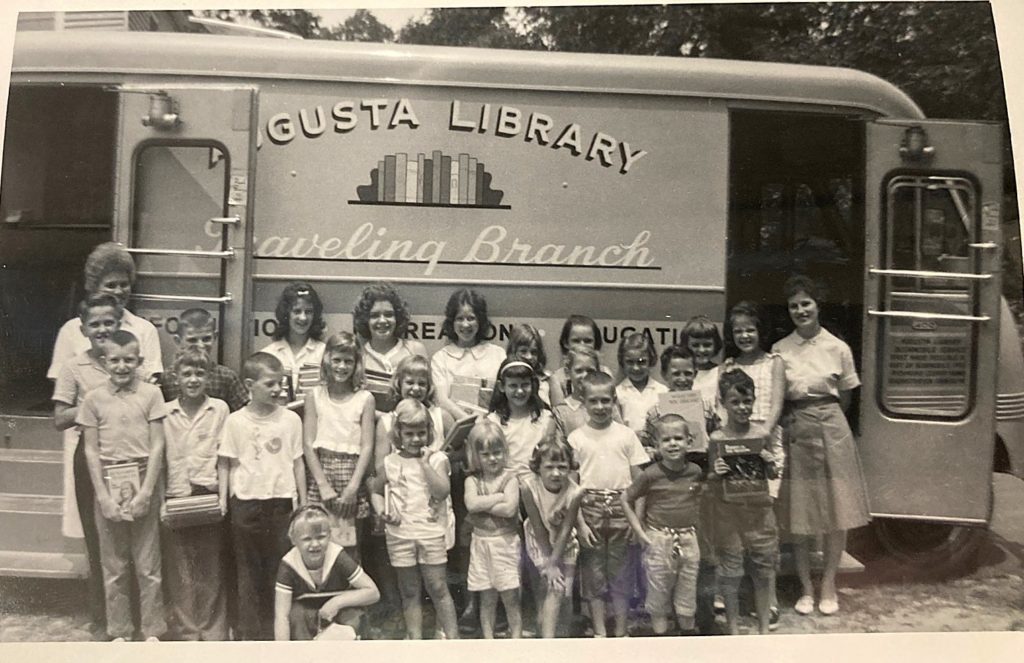
Historically, traveling libraries were all about building literacy, delivering books to folks without access to brick and mortar libraries, to those most in need and desirous of library services. America’s first bookmobile, a horse-drawn wagon appeared in 1905 and served Washington County, Maryland. Motorized bookmobiles shortly followed and by mid-century until the early 2000s traveling libraries numbering in the thousands motored along the highways and byways of American cities, towns, suburbs, and country-sides. They could be seen setting up in the dirt parking lots of country stores, on the grassy lawns of churches, near the dusty playgrounds of public schools, and under the bright sun of suburban shopping centers. And at times, right in the yard of someone’s private home.
Local Augustan Barry Paschal remembers, “The Winfield, Georgia home of my grandmother, Annie Laurie Paschal, was one of the scheduled stops of the bookmobile in the 1960s and 70s. She helped me get a library card, and each week I’d walk up the dirt road to her house to meet the bookmobile and get a week’s worth of books. The librarians on the bookmobile learned what kinds of books I liked and each week made sure to stock an assortment of books they thought I’d like. It was marvelous.”
Wherever the bookmobile found itself, one thing was certain, crowds of children and parents flocked to check out books, listen to story times, and come together as a community. Among the many activities bookmobile librarians offered, story times and craft making were always a hit. Librarians also learned what their bookmobile patrons reading interests were. Kelly Timmerman of Augusta pays homage to the librarians, “The bookmobile came to Alexander Drive each month during the summer. The librarian who drove the bus researched my likes and had dozens of historical fiction and nonfiction books for me. I liked historical biographies too and every month I checked out armloads of books. Because that librarian took the time and effort to stock books that I loved, I absorbed so much information about historical figures and culture.”
In these two images below young folks from Evans (1971) and Grovetown (1963) are seen making paper boats and listening to tunes on a vinyl record player.
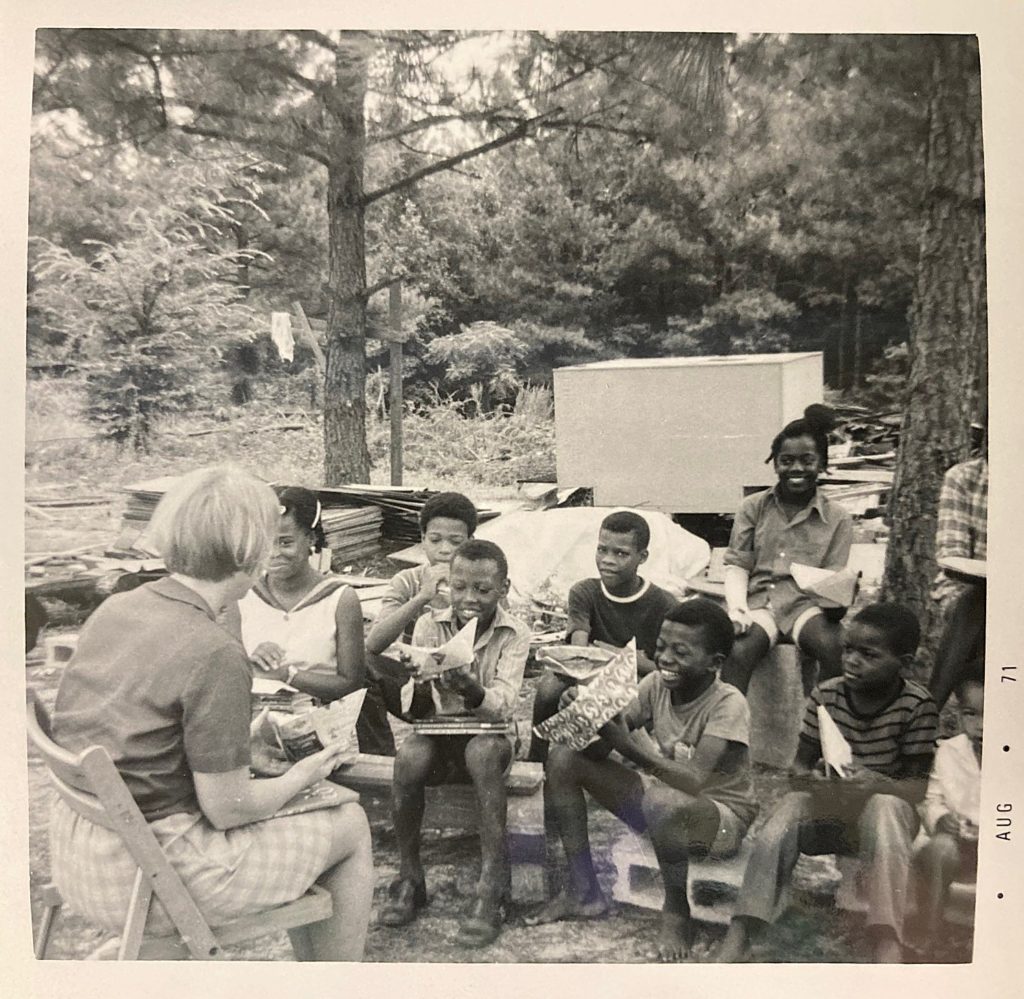
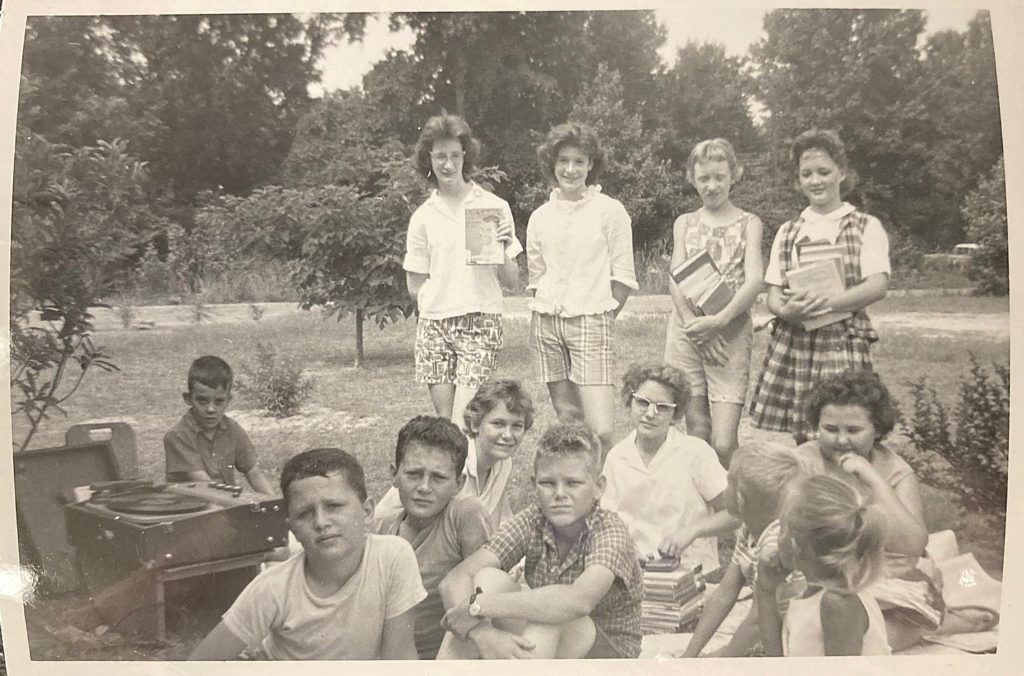
Berry Fleming writes in 199 Years of the Augusta’s Library that Bookmobile service arrived in Augusta, Georgia on October 6, 1947 when the six Home Demonstration Clubs of Richmond County donated a station wagon to be used as a rolling library. Home demonstration clubs, a program of the U.S. Dept of Agriculture, advocated for women living in rural areas by offering classes such as canning, sewing, cooking and other services. The home demonstration clubs also promoted literacy, prompting the Richmond County clubs to donate Augusta’s first bookmobile. The station wagon arrived in Augusta to much fanfare according to Chronicle reporters, taking its inaugural run through downtown in a motorcade of cars from outlying farm communities, decorated with streamers of blue and yellow, the home demonstration club’s colors. A celebratory gala was held on the lawn of the old Richmond Academy building which served as the Augusta’s public library location until 1960 when it moved to a state-of-the-art building at 902 Greene Street.
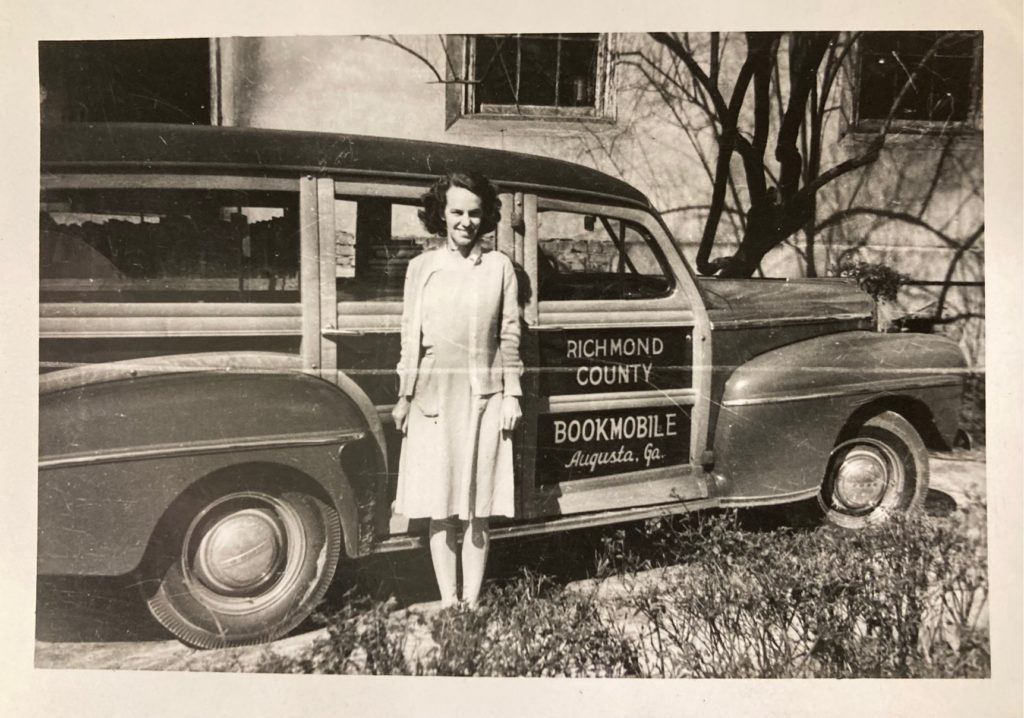
By 1951 the Library had purchased two Ford Vanettes thanks to the Leroy Howard Memorial Fund, and extended service to Columbia County. Over the next several years, the Augusta Public Library became a regional system, and the rolling libraries were motoring up and down the highways and dusty back roads to counties throughout East Central Georgia. So much traveling in fact, the wear and tear to the Ford Vanettes prompted the library board to approve the purchase of two new, larger Gerstenslager bookmobiles in 1958.
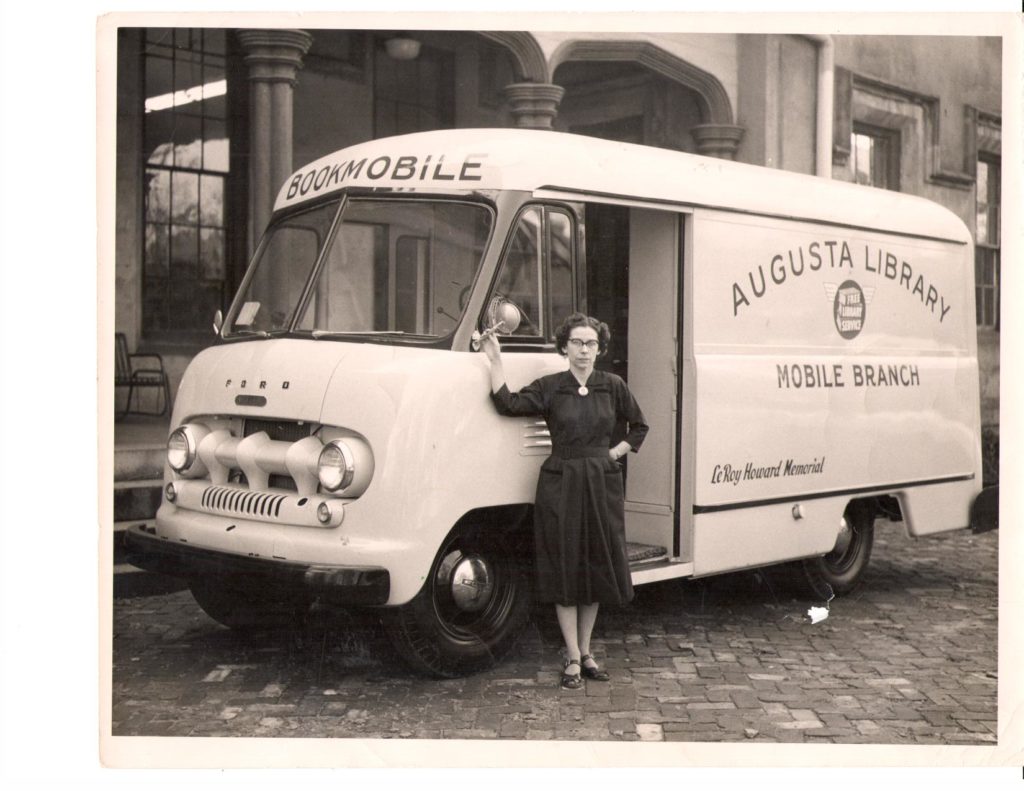
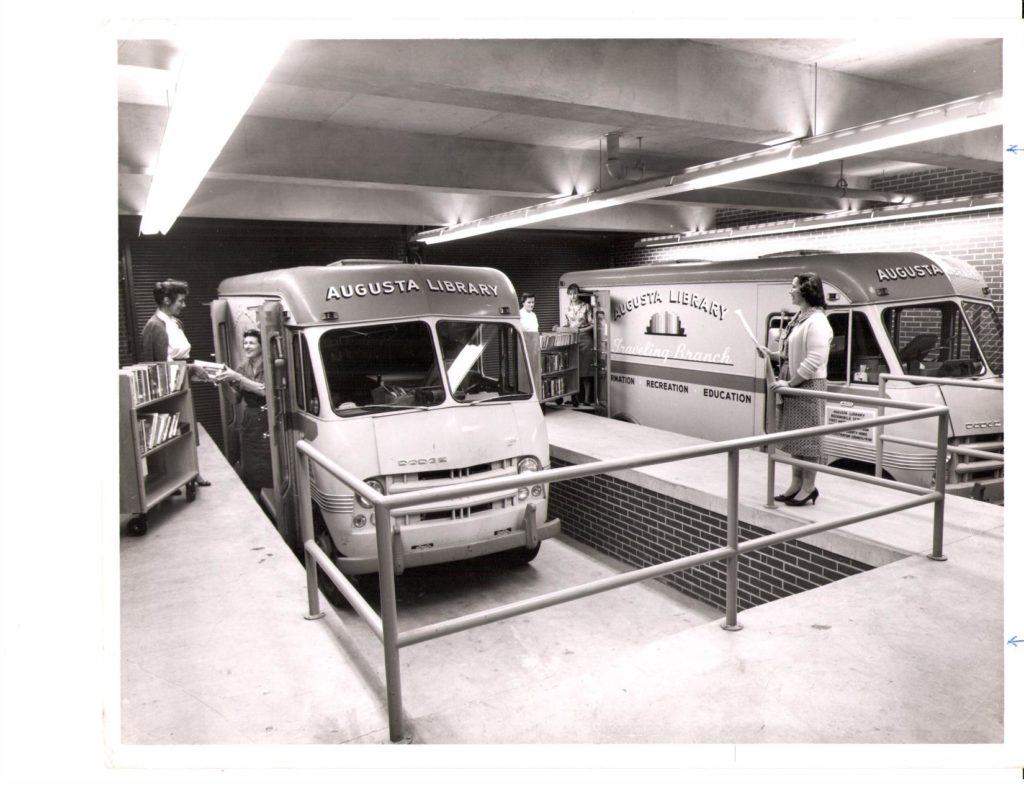
According to Library records, the bookmobiles traveled an average of 1,000 miles each month in 1953 and made approximately 200 stops. The stops included “large apartment house settlements, trailer cities, schools, country stores and other designated places.” That same year the Augusta Chronicle reported, “There are 62 stops twice a month in Richmond County; 26 two-a-month stops in Augusta; 15 once-a-month stops within Augusta; 15 once-a-month pauses in Columbia County, and four stops every 30 days in Glascock County.
Dale Reddick who grew up in Blythe, Georgia remembers his one-minute walk to the bookmobile when it arrived on Morrow Street and parked under three huge sycamore trees directly across the street from his home.
Kathy Perry Helton, who grew up in Augusta, muses, “When the bookmobile came to Balfour Street in South Augusta, we would take off running barefoot to visit. I’d usually end up with stickers in my feet but it was worth it. It was magical.”
After nearly sixty years of service to the residents of Richmond, Columbia, Burke, Warren, Lincoln, and Glascock counties, the East Central Georgia Regional Library System put the brakes on the bookmobile on August 17, 2006. By that time, only one bookmobile was in commission and the route had shrunk to day-care centers and assisted living facilities for seniors. Public outcry was immediate. Bookmobile manager, Diane Evans and Library employee, Betty Dawson were considered dear friends to those who checked out books and when they announced the end of service, many of the seniors who had no other way to get books walked away in tears.
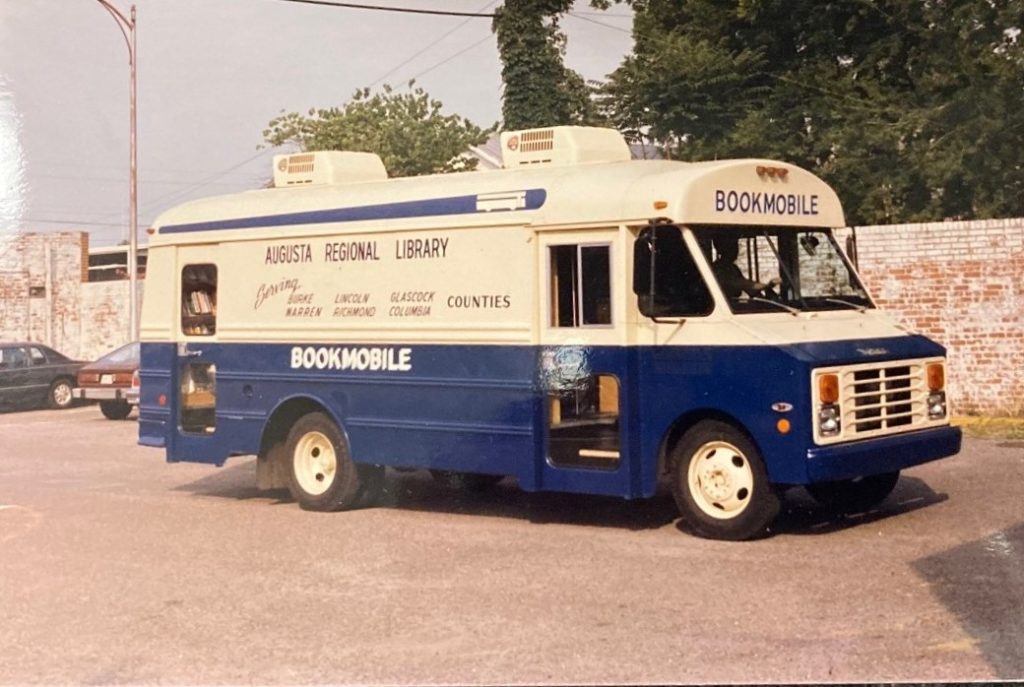
The shuttering of the Augusta Public Library beloved bookmobile followed a national trend, beginning around 1991 when they began disappearing one by one from our streets and roads. Shrinking budgets, satellite branches opening in rural areas, and online resources that allowed remote access to library services quickly drove the bookmobile into the proverbial sunset. But though they declined, bookmobiles never completely disappeared. Beginning in the mid 2000s, the downward trend reversed, as libraries adapted bookmobile service to the changing technologies and shifting attitudes of society. Today many library bookmobiles are technology hubs on wheels, delivering much needed services such as Wi-Fi hotspots, laptops, printing, and other digital resources.
In 2020, nearly 15 years after ending bookmobile service in East Central Georgia, the Augusta Public Library was awarded a substantial ARPA Grant to purchase a modern, state-of-the-art mobile library fitted out with laptops, hotspots, a 3-D printer, play-aways, DVDs, and yes, books, books, books! The ARCPLS bookmobile is on the road everyday, delivering library resources and providing outreach services to schools, community centers, assisted living facilities and more. You can also find us setting up at special events like Earth Day and Arts in the Heart. If you happen to see the bookmobile out and about, please step aboard and learn more about all your public library has to offer.
Long live the library bookmobile!
